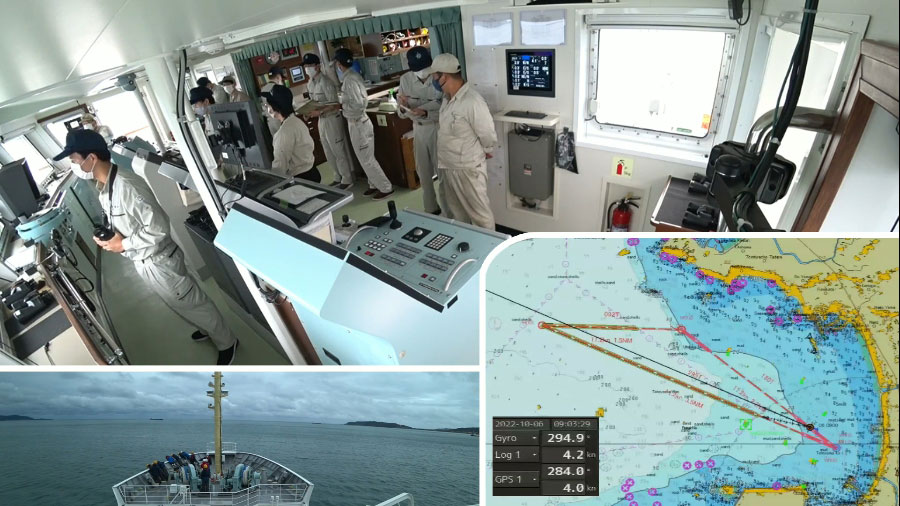What you can learn in graduate school
In order for Japan to develop as a maritime nation and play a role in contributing to the international community, it is necessary for Tokyo University of Marine Science and Technology, the only maritime university in Japan, to fulfill its mission as a center of education and research to "know the ocean, protect the ocean, and use the ocean (Voices from the Ocean)". From this perspective, our university conducts the comprehensive education and research on the ocean, with a focus on fostering highly skilled professionals, including researchers. The Course of Maritime Technology and Logistics focuses on education and research in the following areas
The Master's Program in the Course of Maritime Technology and Logistics focuses on the following areas
- Safety of vessels, which are the main body of maritime cargo transport
- Ship operation management that ensures economic efficiency in harmony with the environment and applies advanced information technology
- Design, operation, and management of new marine structures utilizing ship operation technology
- Analytical and observational research to understand atmospheric and oceanic phenomena and marine resource conservation strategies from a marine anthropological perspective
- Optimization of logistics by considering cargo flow in the context of intermodal transportation including sea, land, and air transportation.
- Social engineering aspects of logistics, such as economics, networking of cargo information, and informatization of cargo management at ports and harbors.

Maneuvering experiments on the Shioji Maru
The environment surrounding ship safety, ship operation management, marine environment, offshore structures, and logistics, which are the subject of education and research in this department, has been changing dramatically in recent years.
The development of " Maritime Autonomous Surface Ships(MASS)" has been raised in the area of ship safety and ship operation management. The development of MASS is being promoted from the perspectives of further improving maritime safety, improving the working environment on board, and increasing industrial competitiveness and productivity. The Ministry of Land, Infrastructure, Transport and Tourism (MLIT) has categorized "ships that support seafarers, who are the final decision makers, with onshore ship operations and action proposals by AI and other means" as "Phase II MASS," and aims to put them into practical use by 2025. Naturally, the seafarers and land-based operators on board MASS will be required to adapt to the new technology.
In the area of marine environmental issues, plastic debris in the oceans is a global-scale problem that requires urgent countermeasures. The Act on Promotion of Global Warming Countermeasures has also been enacted, and Japan is aiming to become carbon neutral by 2050. In order to reduce greenhouse gas emissions, new ship propulsion systems are being developed. Electric propulsion is now in practical use, and the use of LNG (liquefied natural gas), ammonia, and hydrogen as new fuels is also being considered. The training and development of excellent seafarers who can respond to these changes is also becoming more important.
As for offshore structures, from the perspective of renewable energy, offshore wind power is already in commercial operation, and research into tidal power generation is also underway. Vessels equipped with DPS (Dynamic positioning system) are indispensable for building such offshore structures, and the training of operators to operate them is also urgently needed.
Maritime logistics is still on the rise, and delays in operation schedules, vessel cancellations, vessel excursions, and cargo delays at major ports have become the norm, with no prospects for improvement in sight. In addition, various issues must be resolved in international intermodal transportation that involves sea, land, and air.
Thus, there is a mountain of issues to be tackled by the Course of Maritime Technology and Logistics, and graduate students can deepen their knowledge of ships, oceans, and logistics by taking on the challenge of solving these issues.